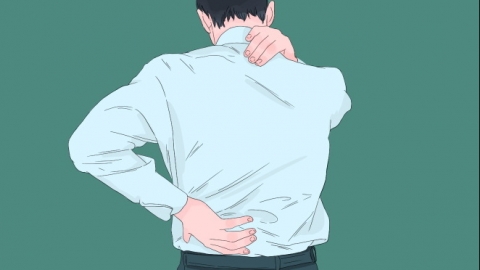How is Ankylosing Spondylitis Caused?
In general, ankylosing spondylitis may be caused by genetic factors, prolonged exposure to cold and humid environments, chronic strain of the sacroiliac joints, gut microbiota imbalance, abnormal autoimmune inflammatory responses, and other factors. It is recommended to seek timely medical consultation to identify the exact cause and undergo appropriate interventions under a doctor's guidance. A detailed analysis is as follows:

1. Genetic factors: Individuals carrying the HLA-B27 gene have a significantly higher risk of developing the condition compared to the general population. Genetic susceptibility is an important underlying factor in disease development. Daily attention should be given to protecting the spine and joints, avoiding excessive fatigue, and undergoing regular CT scans of the sacroiliac joints and X-rays of the spine for early detection and treatment. Consistently engaging in low-impact exercises such as swimming and yoga can help maintain joint mobility and reduce the likelihood of disease onset.
2. Prolonged exposure to cold and humid environments: Extended exposure to low temperatures and damp conditions may cause blood vessel constriction around the joints, impairing local circulation and triggering inflammation. It is advisable to avoid staying in humid environments for long periods and to keep the joints warm during rainy or cold weather by using hot water bottles, back supports, knee guards, and other protective measures to reduce environmental irritation to the joints.
3. Chronic strain of the sacroiliac joints: Prolonged bending, lifting heavy objects, or poor posture can repeatedly stress and wear the sacroiliac joints, leading to chronic injury and increasing the risk of disease. Activities that place excessive load on the sacroiliac joints should be minimized, such as prolonged bending or lifting heavy objects. It is recommended to take a 5–10 minute break every hour of work to stretch the joints.
4. Gut microbiota imbalance: Imbalances in the gut microbiota can lead to immune dysfunction. Toxins released by harmful bacteria may reach the joints through the bloodstream and trigger inflammation. Patients may take medications such as Bifidobacterium triple viable capsules, Bacillus subtilis live capsules, or Licheniformis bacillus viable capsules as directed by a physician to regulate the gut microbiota.
5. Abnormal autoimmune inflammatory response: Imbalance in the body's inflammation regulation mechanism leads to excessive release of inflammatory factors that attack the spine and joint tissues, causing chronic inflammation. Patients may take anti-inflammatory and pain-relieving medications such as celecoxib capsules, diclofenac sodium sustained-release tablets, or etoricoxib tablets as prescribed by a physician.
Daily routines should include maintaining a regular sleep schedule and avoiding late nights to prevent exacerbation of inflammation. A balanced diet rich in protein and vitamins should be maintained to enhance physical immunity and aid in controlling inflammation.







